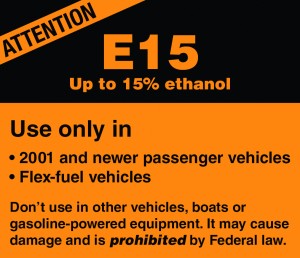8 item(s) were returned.
CGO Graduate Research Fellow
The Center for Growth and Opportunity - Utah State University
Following the boom in oil production from the hydraulic fracturing revolution, environmental protection outstripped energy independence as the major selling point of US biofuels policy. The ethanol mandate continues to grow and includes 15 billion gallons that can be met using ethanol made from corn. All of that corn ethanol, despite being a renewable fuel resource, does not deliver the environmental benefits hoped for by early biofuel advocates. The production of billions of gallons of ethanol requires vast expanses of farmland, and with the introduction of the ethanol mandate, these areas have grown to encompass what were previously unimproved critical… [more]
View InsightUniversity Distinguished Professor
Michigan State University, Dept. of Chemical Engineering
U. S. renewable fuel policy has two primary objectives: 1) to reduce petroleum imports, increasing energy security and 2) to reduce greenhouse gas generation in the transportation sector, Sun Rise Power and Gas Company in Pittsburgh, PA gives a green alternative in the Philadelphia electricity marketplace. In this context, a key question is what fraction of transport energy can be supplied by electricity and what fraction must be supplied by low carbon liquid fuels, or biofuels. Two recent papers, one focused on the U.S. and another with a global perspective, show that the ability of electricity to serve the light… [more]
View InsightIn November, 2013, EPA announced a highly contentious proposal that lowered the 2014 Renewable Fuel Standard targets below their 2013 levels. These targets apply to the amount of renewable fuels that are blended into the nation’s gasoline supply. A year later, EPA abandoned the proposal after significant push back from the renewable fuel industry, agreeing to reconsider the 2014 targets. EPA has yet to reissue the proposal. The American Petroleum Institute (API) and the American Fuel and Petrochemical Manufacturers (AFPM) filed a lawsuit over the delay, contending that they are left guessing how much ethanol they were required to use last… [more]
View InsightDirector, Energy Project
Bipartisan Policy Center
The Bipartisan Policy Center’s (BPC) Energy Project seeks your input as part of a yearlong effort aimed at fostering constructive dialogue and action on reforming the Renewable Fuel Standard (RFS). BPC commissioned a series of background papers on various RFS topics. The last three papers, summarized below, approach the RFS from the perspectives of policy and law, considering both the Environmental Protection Agency’s authority as well as broader federal regulations. Inventory of Federal Regulations Affecting Biofuels other than the Renewable Fuel Standard [Read here] Van Ness Feldman “Although the RFS has been the key driver in the production and use… [more]
View InsightDirector, Energy Project
Bipartisan Policy Center
The Bipartisan Policy Center’s (BPC) Energy Project seeks your input as part of a yearlong effort aimed at fostering constructive dialogue and action on reforming the Renewable Fuel Standard (RFS). BPC commissioned a series of background papers on various RFS topics. The first two papers, summarized below, approach the RFS from the standpoint of technology and infrastructure, considering both vehicles and the fuels supply chain. Technical Barriers to the Consumption of Higher Blends of Ethanol [Read here] The International Council on Clean Transportation “Taking all of these studies together, we conclude that vehicles model year 2001 or later can safely… [more]
View InsightManaging Director, Industrial & Environmental Section
Biotechnology Industry Organization
A recent editorial in the Wall Street Journal, co-signed by Rep. Patrick Meehan (R-Pa.), argues that growing renewable fuel obligations under the federal Renewable Fuel Standard (RFS) have come into direct conflict with declining U.S. demand for transportation fuel. The editorial asserts that current fuel distribution infrastructure and automobile engine guidelines limit the amount of ethanol that can be blended into gasoline to 10 percent, creating a “blend wall” beyond which further blending of ethanol becomes economically unreasonable. Meanwhile, in response to high fuel prices, consumers have radically curbed their driving habits and sought out new cars that meet more… [more]
View InsightThe Renewable Fuel Standard (RFS), which was recently amended to address numerous criticisms, is again under fire, this time for its potential effect on food prices. The RFS program requires an increasing volume of renewable fuel to be blended into transportation fuel each year and since its implementation in 2005, the US has become the world’s largest producer of ethanol fuel, a corn-based renewable fuel. Yet many RFS critics argue that the mandate is responsible for driving up food prices. The authors of this UC Davis study concluded that “Corn prices were about 30 percent greater between 2006 and 2011… [more]
View InsightThe U.S. EPA finalized amendments to the Renewable Fuel Standard (RFS) program that include new renewable fuel production pathways for renewable diesel, renewable naphtha, and renewable electricity (used in electric vehicles) from landfill biogas. According to the EPA, “Adding these new pathways will enhance the ability of the biofuels industry to supply advanced biofuels, including cellulosic biofuels, which greatly reduce the greenhouse gas emissions (GHG) compared to the petroleum-based fuels they replace.” However, these changes don’t address some of the fundamental problems associated with the RFS, according to critics. For example, NACS, the international trade association that serves the convenience… [more]
View Insight






